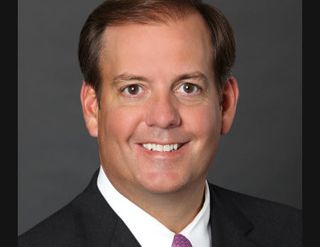AT&T’s ‘Vertical’ Merger Stretch

Related >Back to the Future: Analysis of the AT&T-Time Warner Deal [subscription required]
WASHINGTON — A former Federal Communications Commission bureau chief remembers being in the room for a meeting after America Online announced its merger with Time Warner Inc. in 2000. The talk from the two companies then had been about innovation and synergy.
Someone in the room asked whether the FCC had jurisdiction over the Internet. There was a pause, silence and some puzzled looks before an agreement that, indeed, it did.
“Unspoken and lingering in the air was the thought that this is far too big for us not to have jurisdiction,” said the former official.
The question of the FCC’s role in reviewing another big merger involving Time Warner — this time, a $107.8 billion acquisition by telco AT&T — was again hanging in the air last week. This time, the question was whether the FCC would have any role in reviewing the deal and whether, regardless of who vets it, that deal would go through.
JURISDICTIONAL HOOKS
The FCC reviews mergers when licenses change hands, but Time Warner owns only a single TV station, WPCH-TV in Atlanta. It could spin off the station (the former superstation WTBS, now operated under an local management agreement by Meredith Corp.) to avoid that potential review.
Multichannel Newsletter
The smarter way to stay on top of the multichannel video marketplace. Sign up below.
Time Warner also has a handful of earth-station licenses it uses to distribute cable networks HBO and TBS, which would seem harder to unload in order to get out from under FCC oversight of the deal, though analysts suggested AT&T and Time Warner were busy trying to figure that out.
Related > More stories on the AT&T-Time Warner Merger
The former FCC official said it would be interesting to see if the agency can resist finding some other way into the deal if that happens, adding, “This one will be a real thrill to watch.”
It could be an extended thrill ride. Given the size of the deal and the intervening presidential election and change in administrations, a decision isn’t likely to be reached until late next year.
Related > Marcus, Bewkes. What’s In a (CEO) Name? [subscription required]
AT&T’s bid for Time Warner appeared to be a pivot toward broadband video distribution after its purchase only a little over a year ago of satellite-TV provider DirecTV, which the telco also pitched as making it a stronger competitor to Big Cable.
Clearly, positioning the deal as creating competition for cable and more access for online content was a pitch aimed at Washington, where the Obama administration is always looking to create more video competition and access, particularly online.
But securing the deal could come at the price of monetizing all that new Time Warner content if the quid pro quo is making it accessible to others.
The FCC has made it clear that it has authority over the distribution of content over the Internet, which is what the deal announced last week — combining killer content from CNN, Warner Bros. TV and films with mobile broadband — is all about.
But even if the antitrust-focused Justice Department is the lead dog and if it concludes that AT&T-Time Warner deal could hurt competition for online content or shelf space, it could sue to block the deal, seek spinoffs or apply deal conditions. (For instance, Time Warner’s 10% interest in OTT platform Hulu could be problematic, if the DOJ is concerned about that online video programming asset in combination with planned over-the-top TV service DirecTV Now.)
It was the Justice Department that took the lead in imposing conditions on the Charter Communications-Time Warner Cable, merger preventing contractual impediments to that online competition. The DOJ can also consult with the FCC for its expertise whether or not it is an official participant.
FIRST TIME FOR EVERYTHING
Deal defenders, including AT&T, were pointing out repeatedly that the Department of Justice had not nixed any vertical deals. “In the modern history of the media and the Internet, the U.S. government has always approved vertical mergers like ours, because they benefit consumers, strengthen competition, and, in our case, encourage innovation and investment,” David McAtee, AT&T senior executive vice president and general counsel, blogged last week.
There is a first time for everything, and as AT&T itself pointed out, this is the first deal combining content with a wireless broadband company. It billed the merger as the next revolution in video.
It would also be the first big media merger review of a potential Hillary Clinton administration. Clinton has pledged tougher merger reviews. That could translate to trying to block or condition the deal based on the conclusion that AT&T-DirecTV had both the incentive and the ability to restrict other online providers from access to its content.
The deal vetting will start as a new presidential administration comes in, which could delay the proceedings and bifurcate the process.
Contributing editor John Eggerton has been an editor and/or writer on media regulation, legislation and policy for over four decades, including covering the FCC, FTC, Congress, the major media trade associations, and the federal courts. In addition to Multichannel News and Broadcasting + Cable, his work has appeared in Radio World, TV Technology, TV Fax, This Week in Consumer Electronics, Variety and the Encyclopedia Britannica.

